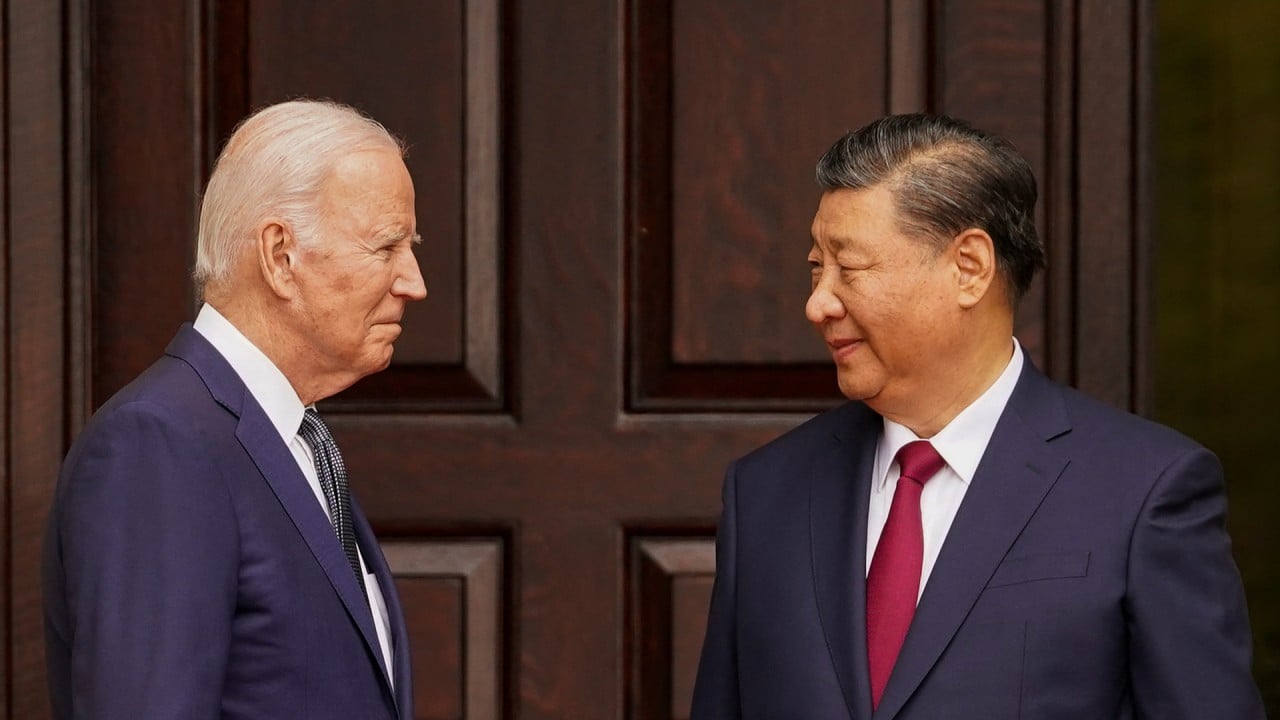
Exclusive | China, US cannot afford depopulating the relationship, American ambassador Nicholas Burns says
- In an exclusive Post interview, Nicholas Burns describes why people-level connections are crucial, and a major win from the Xi-Biden summit
- The veteran diplomat said it is important to continue the momentum so that relations do not get knocked off course again
“The people-to-people exchange is the ballast to keep the relationship stable,” Burns said, in an exclusive interview with the South China Morning Post. “Our two governments have a competitive and contested relationship, but at the people-to-people level, it’s really important that we stay connected.”
During their first face-to-face summit in Bali, Indonesia, in November 2022, Xi and Biden agreed to develop “constructive relations”.
But the goodwill was short-lived after the US discovered an alleged spy balloon from China in its airspace. Beijing said the balloon was intended for civilian purposes and had entered US airspace by accident, but the incident deflated the relationship to a new low.
The leaders’ summit in San Francisco was widely regarded as the biggest guardrail against a continuing downward spiral in bilateral relations.
Xi-Biden summit hit pause on troubled US-China relations: analysts
“It is important for us to continue the momentum [after the San Francisco summit] so we do not get knocked off the course again. The key is to keep the two governments and the senior officials in close communication,” Burns said.
While maintaining official channels is essential, Burns said people exchange between the two sides is key. He said the pandemic caused a sharp drop in people-to-people contact at all levels.
China remained America’s largest source of foreign students this year, but the numbers have dropped significantly over the past three years.
Both countries also agreed to significantly increase direct flights from next year, to facilitate exchanges and business travel.
“Before the Covid-19 pandemic, we had [a total of] 345 flights per week. That number dropped to 12 at one point, and now it’s 70,” Burns said.
Chinese student enrolments in the US – which once stood at nearly half a million a year – dropped below 300,000 in 2022, according to the Institute of International Education.
There are far fewer American students in China today than before the pandemic, Burns said.
“We cannot have the next generation of American students not know about China and not speak Mandarin. Otherwise, we will feel the impact in 20 to 30 years. We need more young people to understand China. We need to recruit people who are China specialists.”
Regarding Xi’s goal to have 50,000 American students come to China over the next five years, the veteran diplomat said that “it may take time to get there, but it is encouraging to hear that”.
Number of Americans studying in mainland China falls sharply
While Washington wants to work with Beijing to repair the relationship, Burns said the US would continue to speak out on human rights issues.
“Human rights and democracy are very important to the United States. President Biden raised the issue of Xinjiang, Tibet and Hong Kong with President Xi at the summit meeting,” Burns said.
“We cannot be silenced on these issues as the US stands for human rights and freedoms. This is core to our identity.”
Xi and Biden clear ‘low bar for success’ but bigger hurdles loom
Likewise, the US would not lift its investment restrictions and sanctions on advanced chip technology to China, he said.
“We are not going to apologise for these [export] controls and restrictions … Such sensitive technologies, like artificial intelligence, could be used to help the People’s Liberation Army to develop its capabilities.
“National security is non-negotiable.”


